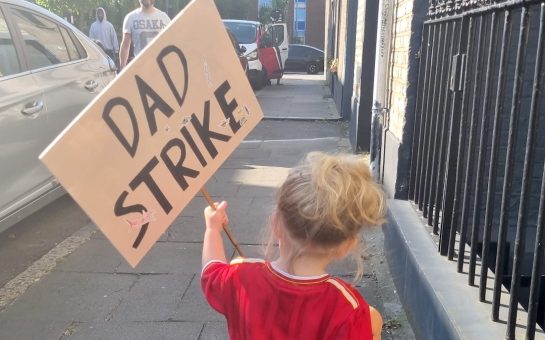As we steadily approach the anniversary of the first UK nationwide lockdown, it is becoming increasingly apparent that the mental health impact of the pandemic will be severe and long-lasting.
Troubling figures reveal that one in three young people in the North West are put off seeking mental health support due to wait times, with over 50% believing lockdown has negatively impacted their mental health.
Moreover, nearly half of people in the North West (45%) have felt the need to take time off work, school, or university due to a mental health problem during the pandemic.
Worryingly, despite so many recognising the need to take time out, only 17% actually did so.
The isolation brought on by lockdowns means that for many, traditional support networks have been taken away from them, frequently exacerbating existing conditions or causing new ones to surface.
This is why today is such an important day – February 4 marks Time to Talk Day; the day aimed at encouraging as many of us as possible to have honest conversations about our own mental health and to check in with loved ones who may be struggling silently.
One of the main obstacles to overcoming mental health stigma is realising that mental health does not ‘look’ a certain way.
Lucy Norris, 35, lives by herself in a studio flat in Manchester.
She works as a media creative and over Zoom she came across as vibrant and confident but she admitted to struggling with severe anxiety since the pandemic began.
“My anxiety, to be honest with you, has been out of control during this lockdown right now”, Lucy admitted and spoke about numerous restless nights and panic attacks.
One of the main barriers for Lucy in terms of getting mental health support has been the cost of private therapy and the long NHS waiting lists.
Despite describing herself as being in a “very fortunate position compared to others”, Lucy has found the social aspect of the pandemic particularly challenging.
“A lot of it is to do with the isolation of it because before this I was always out and about and now I feel like I’ve just been put in a box”, she said, referring to the struggles of living on her own in a studio apartment.
Natasha Naomi Rea, 32, a soap actress who has appeared in Coronation Street and Emmerdale, and has a diagnosis of bipolar disorder has said that keeping to a structured routine has been one of the most helpful things for her mental health.
However, with gyms closing once again, Natasha has been left without an important part of her coping mechanism.
She said: “I manage my condition with diet and training and that’s what affected me in this lockdown – I need to get back in the gym.”
Natasha’s hypomanic episode at the start of the first lockdown also made her believe that she had “caused Covid” – an experience she described as understandably “scary” and “disorienting”.
“People think hypomania just means that you’re really happy and proactive but it can cause a lot of agitation and a lot of anger,” Natasha said.
She had her first serious episode of depression at the age of 14 and has been publicly outspoken about mental health.
“I think we’re going to come out of this pandemic and we’re going to go into a serious mental health pandemic”, Natasha worries, “I think the pandemic has made people go inward – so make an effort to ask if your loved ones are okay regularly.”
As more of us resort to online counselling, digital mental health platforms have become increasingly popular, partly due to the fact that their waiting times are considerably shorter compared to NHS therapy waiting lists, as well as the ability to conduct therapy sessions remotely.
Holly Brick has worked in mental health since 2010 and is currently a Senior Practitioner at Kooth – a digital mental health platform which allows young people to access mental health support anonymously.
Holly believes the digital format has allowed people who have traditionally been excluded from therapeutic intervention to finally reach out for help.
“This has opened the door to so many people who would have otherwise never reached out for support”, said Holly.
Compared to NHS waiting lists which sometimes go as high as 18 months, Kooth promises that every young person should receive some kind of therapeutic engagement within 30 minutes.
Understandably, those providing mental health support face their own challenges as the pandemic has meant a higher rate of disclosures of unsafe home environments and higher volumes of those seeking support.
“The risk level has increased steadily since the first lockdown and it can feel sometimes, as mental health practitioners, people see you as a robot and like things don’t affect you”, Holly admitted.
One of Holly’s colleagues reinforced that view: “We [mental health practitioners] were the key workers that didn’t get any claps.”
Regardless of who I spoke to, everyone agreed the importance of staying connected to the community has never been as critical and will likely remain so far beyond this pandemic.
“Especially for young people, a sense of connection is needed now more than ever, it’s a basic psychological need – we cannot function alone”, Holly concluded.
So while it’s important to remember the common symptoms of coronavirus, it is just as important to keep an eye out for symptoms of mental health un-wellness in your loved ones – depression can be just as deadly as a cough.
Main photo credit Tim Mossholder on Unsplash



